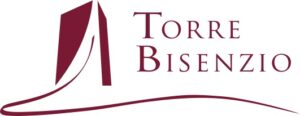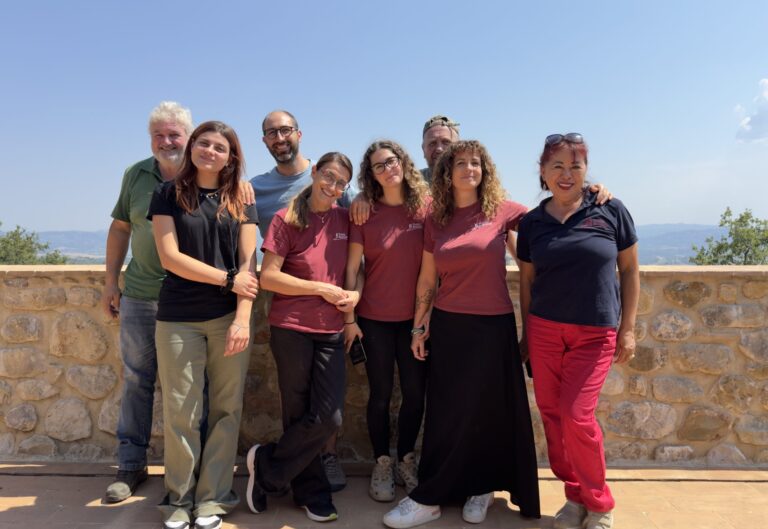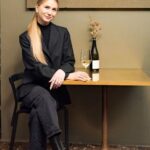People, place, and purpose at Torre Bisenzio
Sustainability, quality, and authenticity. These three founding values have guided Torre Bisenzio since its inception over twenty years ago and continue to do so today. Overlooking the rolling hills of Umbria, this boutique organic winery produces around 30,000 to 35,000 bottles annually from Equalitas-certified grapes, along with high-quality olive oil and organic vegetables.
In 2003, while living in Singapore, Neena and Mike Rees purchased the derelict Torre Bisenzio estate in Umbria. They then made the decision to leave their banking careers and relocate to Italy. What followed was a long process of not only restoration, but also integration. Respect for the land, the community, and the local history has been at the core of the estate’s management ever since.
Upon arrival, they studied the land’s agricultural history and worked closely with local farming and viticulture experts. Today, the estate is home to 120 Chianina cows, the historic indigenous cattle that Torre Bisenzio has helped preserve in the area. All water is sourced from underground wells, electricity comes from solar panels on the barns, and the vineyards follow organic and biodynamic practices.
Curiosity, listening, and a commitment to learning helped Torre Bisenzio become a part of the local community. But finding its place in a tight-knit, traditional society wasn’t easy. This is a point Mike emphasises in our conversation: “We work really hard to be part of the community in the widest sense of the word. We’re not Italian, so we have to work even harder.”
They actively look for ways to contribute to the region, from visiting and promoting local restaurants, to participating in fairs and sponsoring events and the children’s football team. Employee well-being is equally important. Instead of relying on seasonal labour, the estate offers year-round employment with a unique flexible work model.
Torre Bisenzio’s 14 full-time employees take on a range of roles, depending on needs. They could be working in the vineyards one week, and helping out in the villas or in the office another. This variety offers ample opportunity for upskilling and learning, something that Mike and Neena place great emphasis on. Each employee has a personal development program structured around their interests and ambitions. Some employees are currently doing English courses, and others social media training.
This model offers many benefits. Investing in long-standing relationships builds trust and improves quality, which in turn leads to the added advantage of repeat business and referrals from clients returning for villa rentals, wine tastings, or meat purchase. That’s where you start to see brand value building. The value of human capital is something Mike carried over with him from his 26 years in banking. “What I knew about winemaking, you could write on a postage stamp,” he says with a smile. “But what I do know is how to create the right teams. We have both full-time members and consultants who come in to advise.”
Investing in employees can make them attractive for larger opportunities, and losing people is always a risk. This is a fairly normal outcome if you help people develop, Mike explains, and is something you should see as a positive. It’s also something you can prepare for, he adds.
Finding replacements, however, can prove difficult. Many younger people are more interested in opportunities abroad than in rural Italian life. This isn’t a challenge unique to the wine industry, as farms worldwide struggle to attract the next generation. Having a compelling proposition is not just a nice-to-have; it’s essential. At Torre Bisenzio, the belief that “employees are your greatest asset” is not just a saying, but a principle they live by.
Read more about the winery here.
Featured members



